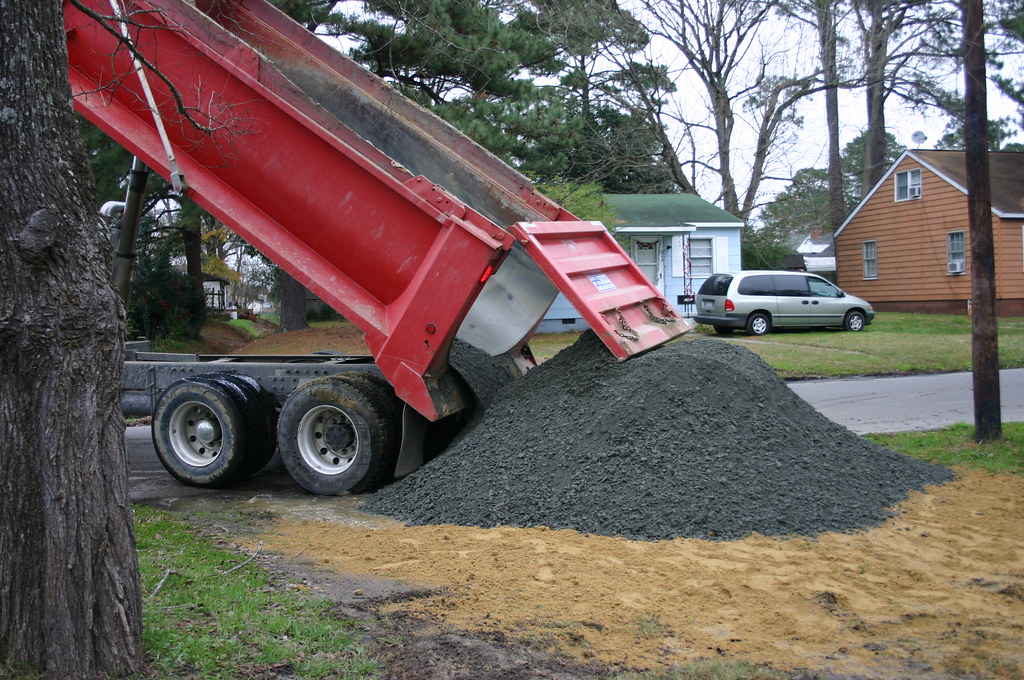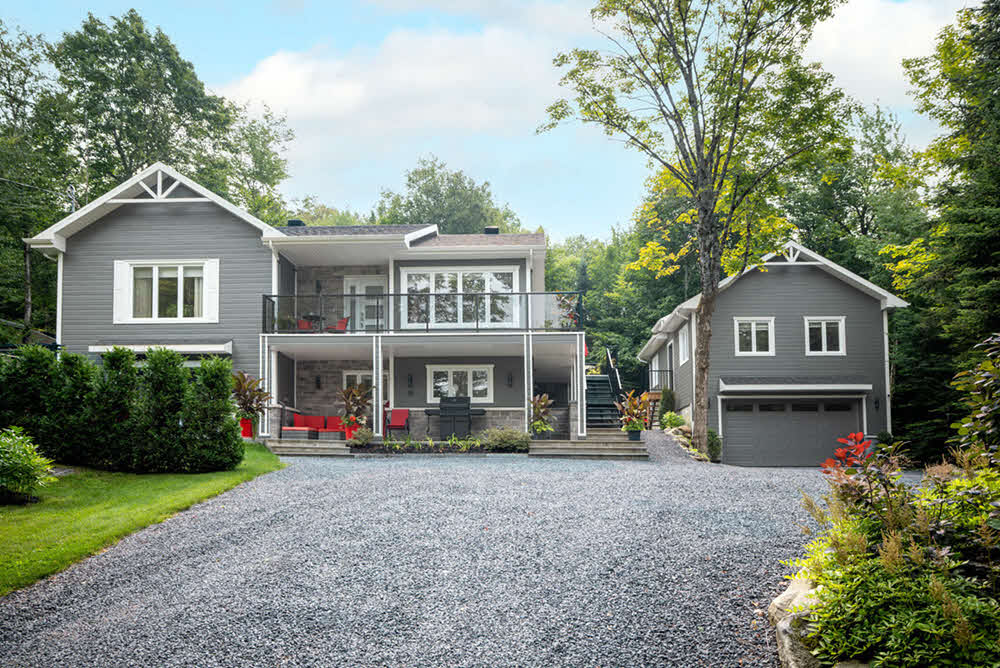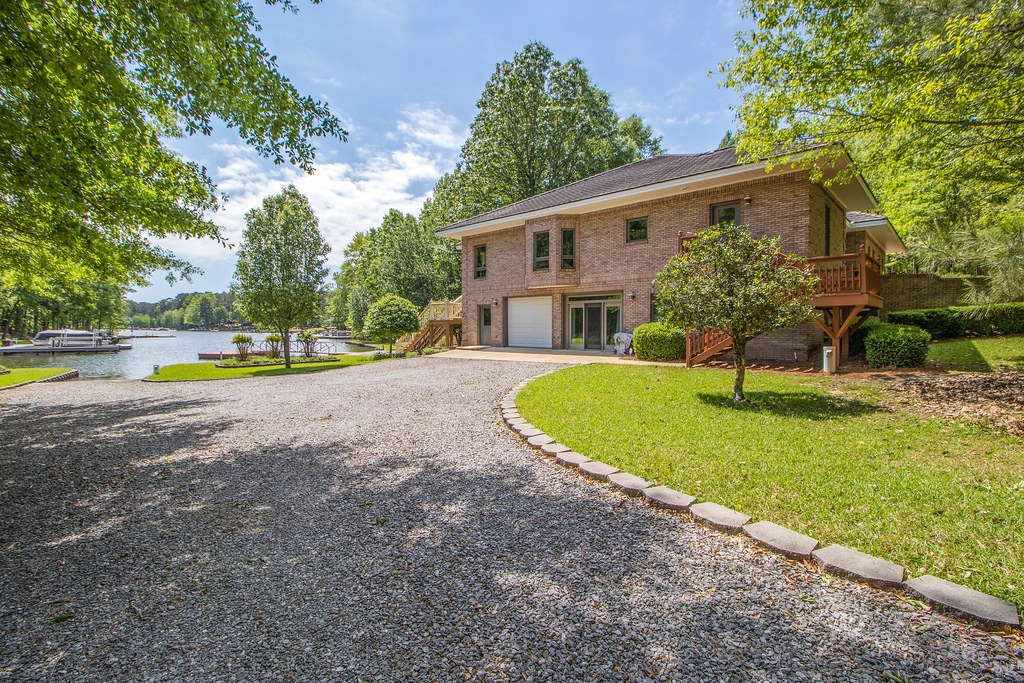Gravel Drivewaysin Armada MI
Expert Gravel Driveway Installation for Lasting Durability
We Are Locally Owned & Operated For Over 37 Years
Contact Us Today!
We Serve Businesses In And Around The Following Cities:
About Gravel Driveways
Introduction
In the bustling city of Armada, commercial properties continue to thrive and evolve with the times. Among the features that contribute to these buildings’ durability and aesthetic value are their driveways, critical for both functional and design purposes. While various materials can be used to construct these entrances, one of the most versatile and cost-effective choices is a gravel driveway.
Understanding Gravel Driveways
Gravel driveways are versatile alternatives to concrete, asphalt, and paving stones. Made from small pieces of rock and stone aggregates, they provide an appealing natural element to any property. Moreover, as a commercial property owner, choosing to install a gravel driveway can yield numerous advantages over other materials, particularly when you collaborate with the experienced gravel driveway contractors at D&J Contracting.
The Process of Installing Gravel Driveways
The journey to a appreciated gravel driveway lies in its proper installation—a labor-intensive process that requires expertise, precision, and the right equipment. When you begin laying a gravel driveway, a solid foundation is essential before spreading the layers of gravel. Not only does this prevent sinking and displacement, but it also ensures stability and longevity. Whether you’re installing a pea gravel driveway, an edged gravel driveway, or other forms, this foundation is crucial.
After preparing the base, up to three layers of differently sized gravel are added, which blend to provide a seamlessly smooth surface. The layers also encourage adequate drainage, prevent weeds, and keep the driveway leveled. While you can choose to tackle the procedure independently, employing professional gravel driveway contractors near you, such as D&J Contracting, can save you time and effort while guaranteeing a job well done.
The Benefits of Gravel Driveways
Investing in a gravel driveway serves both practical and aesthetic functions. One inherent advantage is the low gravel driveway cost compared to concrete or asphalt options. Gravel’s affordability extends not just to installation but also maintenance. For instance, fixing potholes in a gravel driveway is typically less costly and onerous than with other materials.
Additionally, gravel driveways are water-friendly, promoting efficient drainage which reduces the risk of standing water and subsequent driveway damage. This absorbent nature also contributes to decreased runoff, making your commercial property environmentally friendlier. Another significant benefit resides in their durability. With regular maintenance, such as gravel driveway grading or leveling, coupled with timely repairs, these driveways can last for decades.
The aesthetic appeal of gravel driveways should not be underestimated either. Whether it’s a classy black gravel driveway or a softer gray driveway gravel, the range of colors and textures adds to your property’s curb appeal. As such, a well-kept gravel driveway not only enhances your property’s value but can also have a positive impact on customers’ first impressions.
Real-world Applications of Gravel Driveways
In commercial settings, gravel driveways offer impressive functionality and visual appeal. For example, gravel pathways and sidewalks are being increasingly integrated in Armada’s commercial complexes, retail centers, office parks, and other business establishments.
Take the modern gravel driveway for instance. This application expertly combines aesthetic factors with proven durability, creating a welcoming yet impressive entrance. Meanwhile, businesses often prefer laying a gravel pathway or sidewalk because of the material’s cost-effectiveness, ease of maintenance, and flexibility in design.
Moreover, establishments like wineries and countryside resorts favor gravel driveways for their inherent connection with nature. The natural appearance and soothing sound of gravel enhances the serene, rustic ambiance these places aim to provide. Even in urban settings, businesses—like boutique hotels or art galleries—use gravel driveways to create a unique identity and stand out amid concrete and asphalt environments.
Thus, whether you’re putting in a gravel driveway for the first time or repairing an existing gravel driveway, professional services like D&J Contracting can artfully blend aesthetics, durability, and cost-effectiveness to deliver the best results. With their industry knowledge and skilled implementation, they can guide you in creating a gravel driveway specifically tailored to your property’s needs and design preferences.
The Final Takeaway
All things considered, a gravel driveway is a worthwhile investment for commercial properties. Between the low cost, easy maintenance, environmental benefits, and aesthetic versatility, the advantages are compelling. So, whether you’re dealing with a new construction project or looking to upgrade an existing one, exploring the potential of a gravel driveway makes good business sense. Armed with this information, and with services like D&J Contracting ready to help, there’s no better time to consider gravel driveways for your commercial property in Armada.
Gravel Driveways Gallery


Call Us Today to receive your Free Quote for
Gravel Driveway in Armada
Serving: Armada, Michigan

About Armada, Michigan
|
|
This section does not cite any sources. (October 2009)
|
The first record of land purchased in the area that became Armada Township was made by John Proctor in 1825. Twenty-three more families had bought land in the rural area by 1832. Until that year the area was part of Ray Township. At that time a meeting was called to organize a separate township. The vote won by two and Armada Township was founded. When the discussion began to choose the name for the new township, legend says that “Hosea Northrup jumped up and shouted the name ‘Armada'”. The name was accepted.
Several communities were founded within the township, which was originally developed for agriculture. What became the village of Armada was founded in 1833 by Elijah Burke; it was originally called “Burke’s Corners” after him. The village began to prosper when residents improved the old Indian trail for use as a roadway in the early 1830s. The road soon became part of the immigrant and migrant road network between Romeo and Port Huron, Michigan. Today this is known as Armada Ridge Road.
Burke’s Corners was briefly renamed “Honeoye”, for the New York hometown of several newly arrived migrants. When the village was finally incorporated in the late 1860s, it was officially named “Armada”, the same as the township. By then the village had about 800 inhabitants.
During the late nineteenth and early twentieth centuries, the village had a stagecoach stop, an opera house, a theater, seven grocery stores, three hotels, three hardware stores, a lumberyard, a grain mill, two implement dealers, a bakery, five doctors, several blacksmiths shops, and a drug store.
The first school in Armada was a one-room schoolhouse located at Selleck’s Corners. Soon schools were built all around the township. These one-room schools were consolidated during the 1940s. At that time, children were bused into town to attend the schools of the consolidated district.
Armada’s interest in education was demonstrated in the early 20th century by their applying to the Carnegie Foundation for matching funds in order to build and operate a public library. Andrew Carnegie’s program was based on providing grants to villages and towns that would both provide matching funds for construction and commit to supporting all operations and maintenance of libraries. The residents committee of the township asked for $8,000 toward building a permanent township library. The Armada Free Public Library was built in 1915 and is still being used to provide library service in the early 21st century.
A number of fraternal organizations, a literary club, a science club, and the Armada Cornet Band were among the social outlets for villagers and township residents.
The Michigan Air Line Railway connected Armada to other cities in Michigan and elsewhere. Passengers and freight were processed through the two-door depot at the foot of Church Street. A cartage company delivered the freight to uptown businesses by horse and wagon.
In 2014, the village was shut down due to an investigation by Michigan State Police and the FBI of the murder of 14-year-old April Millsap, who was walking her dog on the Macomb Orchard Trail. Her body was found just outside the village limits. In 2016 a jury found the 34-year-old defendant, James VanCallis, a man from St. Clair County, to be guilty of four counts associated with the murder. He was sentenced to life in prison.
Following this, residents came together to support their community. In a July 2019 Reader’s Digest vote, Armada was selected as the “Nicest Place in Michigan”. It was a finalist for the magazine’s “50 Nicest Places in America” story.
Armada is in northern Macomb County, 18 miles (29 km) north of Mount Clemens, the county seat; 28 miles (45 km) southwest of Port Huron, and 39 miles (63 km) north-northeast of downtown Detroit. According to the United States Census Bureau, the village has a total area of 0.74 square miles (1.92 km), of which 0.002 square miles (0.005 km), or 0.27%, are water. The East Branch of Coon Creek passes through the center of the village, part of the Clinton River watershed flowing to Lake St. Clair.
| Census | Pop. | Note | %± |
|---|---|---|---|
| 1870 | 494 | — | |
| 1880 | 556 | 12.6% | |
| 1890 | 638 | 14.7% | |
| 1900 | 863 | 35.3% | |
| 1910 | 748 | −13.3% | |
| 1920 | 711 | −4.9% | |
| 1930 | 840 | 18.1% | |
| 1940 | 865 | 3.0% | |
| 1950 | 961 | 11.1% | |
| 1960 | 1,111 | 15.6% | |
| 1970 | 1,352 | 21.7% | |
| 1980 | 1,392 | 3.0% | |
| 1990 | 1,548 | 11.2% | |
| 2000 | 1,573 | 1.6% | |
| 2010 | 1,730 | 10.0% | |
| 2020 | 1,684 | −2.7% | |
| U.S. Decennial Census | |||
As of the census of 2010, there were 1,730 people, 607 households, and 425 families residing in the village. The population density was 2,276.3 inhabitants per square mile (878.9/km). There were 656 housing units at an average density of 863.2 per square mile (333.3/km). The racial makeup of the village was 98.0% White, 0.3% African American, 0.1% Native American, 0.1% Asian, 0.1% Pacific Islander, 0.4% from other races, and 0.9% from two or more races. Hispanic or Latino of any race were 2.6% of the population.
There were 607 households, of which 40.2% had children under the age of 18 living with them, 55.7% were married couples living together, 10.7% had a female householder with no husband present, 3.6% had a male householder with no wife present, and 30.0% were non-families. 25.7% of all households were made up of individuals, and 11.9% had someone living alone who was 65 years of age or older. The average household size was 2.73 and the average family size was 3.30.
The median age in the village was 38.6 years. 27.9% of residents were under the age of 18; 8.3% were between the ages of 18 and 24; 24% were from 25 to 44; 24.8% were from 45 to 64; and 15.1% were 65 years of age or older. The gender makeup of the village was 47.3% male and 52.7% female.
As of the census of 2000, there were 1,573 people, 540 households, and 408 families residing in the village. The population density was 2,221.8 inhabitants per square mile (857.8/km). There were 558 housing units at an average density of 788.2 per square mile (304.3/km). The racial makeup of the village was 97.71% White, 0.19% African American, 0.57% Native American, 0.13% Asian, 0.06% Pacific Islander, 0.19% from other races, and 1.14% from two or more races. Hispanic or Latino of any race were 1.65% of the population.
There were 540 households, out of which 42.2% had children under the age of 18 living with them, 63.3% were married couples living together, 8.0% had a female householder with no husband present, and 24.4% were non-families. 21.3% of all households were made up of individuals, and 7.6% had someone living alone who was 65 years of age or older. The average household size was 2.81 and the average family size was 3.29.
In the village, the population dispersal was 29.2% under the age of 18, 7.8% from 18 to 24, 30.8% from 25 to 44, 21.3% from 45 to 64, and 10.9% who were 65 years of age or older. The median age was 34 years. For every 100 females, there were 90.0 males. For every 100 females age 18 and over, there were 90.4 males.
The median income for a household in the village was $61,700, and the median income for a family was $69,917. Males had a median income of $50,795 versus $32,330 for females. The per capita income for the village was $22,446. About 2.9% of families and 3.6% of the population were below the poverty line, including 3.8% of those under age 18 and 6.5% of those age 65 or over.
Call Us Today to receive your Free Quote for
Gravel Driveway in Armada
Related Services in Armada, Michigan
We Serve Businesses In The Following Zip Codes:
48007, 48015, 48021, 48026, 48035, 48036, 48038, 48042, 48043, 48044, 48045, 48046, 48047, 48048, 48050, 48051, 48066, 48071, 48080, 48081, 48082, 48083, 48084, 48085, 48088, 48089, 48090, 48091, 48092, 48093, 48098, 48099, 48225, 48230, 48236, 48310, 48311, 48312, 48313, 48314, 48315, 48316, 48317, 48318, 48397